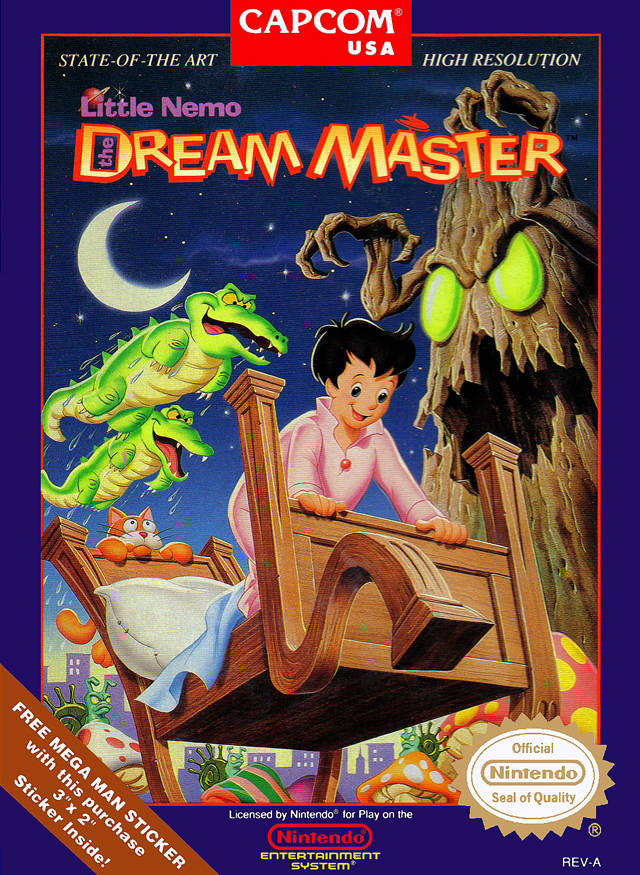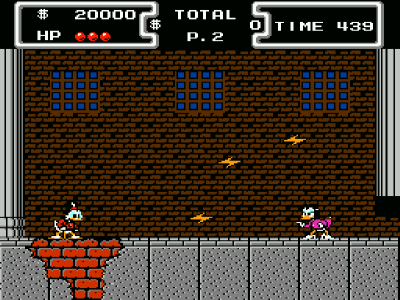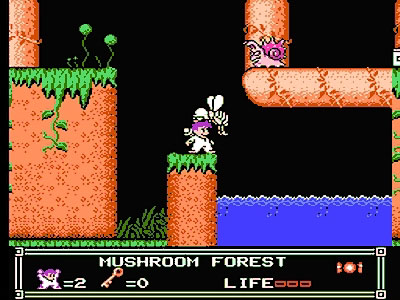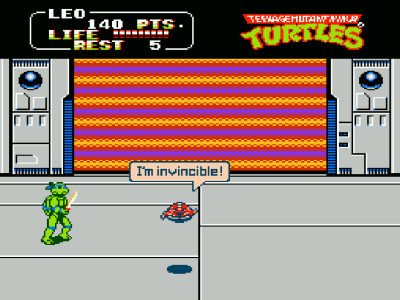
The practice of adapting popular licenses into video games has existed since the advent of the medium, but the stigma attached to licensed titles is a comparatively recent phenomenon. There are, of course, a number of games that will undoubtedly disprove this statement, but by and large it appears to hold true: licensed titles are generally not as good as they once were, and even a cursory look at the software available on NES should be enough to illustrate the difference in the quality of licensed games between then and now.
Many studios found both financial and critical success in creating licensed titles, but Capcom in particular is renowned for developing an array of Disney classics for NES. Nearly every cartoon and film of the era received an interactive adaptation by the developer’s hands: TaleSpin appropriately became a fun and solid rail-shooter, DuckTales and Darkwing Duck became compelling platformers not forged in the Super Mario mold, and even The Little Mermaid became an enjoyable underwater adventure (and the spiritual precursor to Sega’s Ecco the Dolphin series). Each of the aforementioned succeeded as video games precisely because they successfully married the property upon which they were based to their underlying game design, maintaining all of the original property’s charm without sacrificing the integrity and challenge of the gameplay. The end result was a collection of titles that not only replicated the appeal of their source material but were simply fun and rewarding to play in their own right.

Capcom’s expertise with a license was not strictly limited to Disney properties, either, as the company also crafted an oft-overlooked gem in Little Nemo: The Dream Master. Based upon an early 20th-century comic strip originally published in the New York Herald (which would later become an animated film in Japan), Little Nemo was a surreal, fantastical story very reminiscent of Alice in Wonderland. Each installment recounted the dream adventures of the titular protagonist as he journeyed to Slumberland, and many of the comic’s characters and settings inspired and were even incorporated into its interactive adaptation.

Like all of its other licensed titles, the core gameplay of Capcom’s adaptation was rewarding and enjoyable in itself, but where the game truly succeeded was in how it so effortlessly captured the magic and surreality of its source material. Because of this, the entire adventure was imbued with a fantastical atmosphere, transforming an already-fun platformer into a magical experience.
Of course, there were a number of other quality licensed titles available on NES outside of Capcom’s output, with my personal favorite among them being Teenage Mutant Ninja Turtles 2. While a port of the arcade game that was released earlier that very same year, the title stands as a prime example of licensing gone right for a number of reasons.
Foremost, it represents the perfect marriage of license and game design: the four turtle warriors did battle with their nemesis the Shredder and his clan of robotic foot soldiers throughout the entirety of the animated series, and the beat-‘em-up genre was perfectly suited to recreate their heroic exploits in an interactive medium. In addition to that, the game was able to capture the look and feel of the animated series in its graphics arguably better than any other title mentioned in this article, bridging the gap between cartoon and video game. Lastly, the title was simply a blast to play, its levels and the enemies within varied enough to maintain the gamer’s interest throughout the course of the adventure. It is for these reasons that the title is so fondly remembered, elevating it to the upper echelon of licensed video games.

There are numerous other games I would be remiss to overlook— Batman: Return of the Joker, Tiny Toon Adventures, and Chip ‘n Dale: Rescue Rangers immediately spring to mind as enjoyable titles also released during the same generation— but for brevity’s sake they will receive only a passing acknowledgment. Admittedly, all of the aforementioned examples have been culled from my fondest childhood memories, each title cherry-picked from my relatively small software library, but they should regardless illustrate the range and quantity of respectable video games that were available on NES. While there have since been a handful of critically-acclaimed licensed titles across each successive generation, the sheer amount of those released for NES outnumber them by a large margin. The reason for this is open to speculation, but whatever it may be, the fact remains that developers simply do not put as much effort and resources into the production of these types of games as they once did, and for every GoldenEye there will be a few Superman 64s to continue to mar the ratio.
Have a personal favorite licensed title not mentioned in the article? Feel free to state it in the comments below.




 ShareThis
ShareThis






